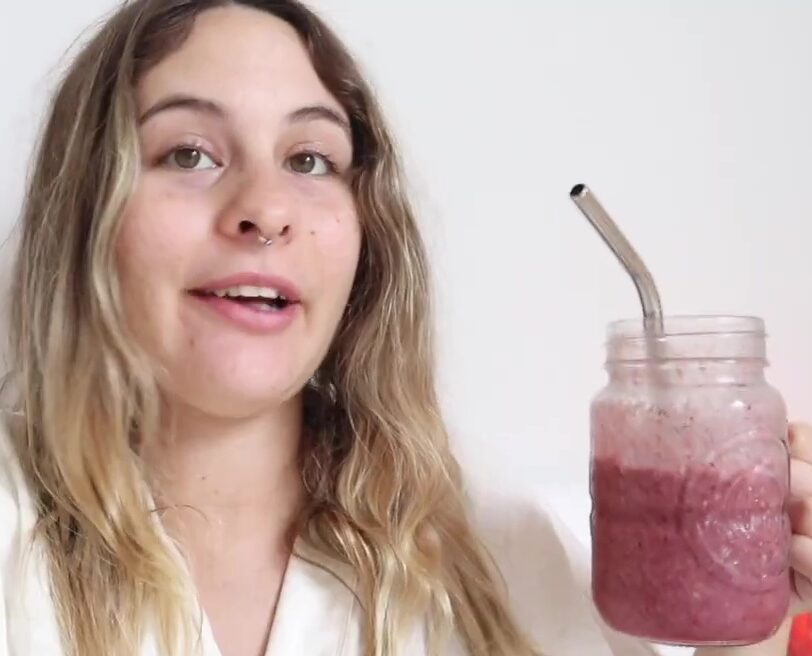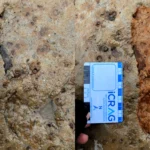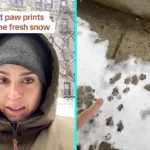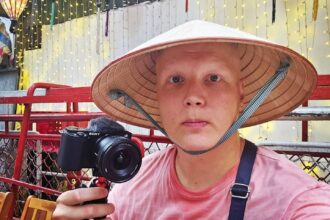Tiana-Rose, 24, a content creator from the Gold Coast, Australia, lives with her fiancé, Luca and her children Theodore, five and their newborn, Arnhem-Sol, who is six months.
Upon giving birth to her first child, she initially organised for the placenta to be professionally encapsulated in a bid to give the organ a taste – but they accidentally left it out too long and it was no longer safe to eat.
The mum-of-two started researching into the benefits of eating the placenta, where she came across smoothies with only a tiny cube included, which claims to help with postpartum anxiety and depression.
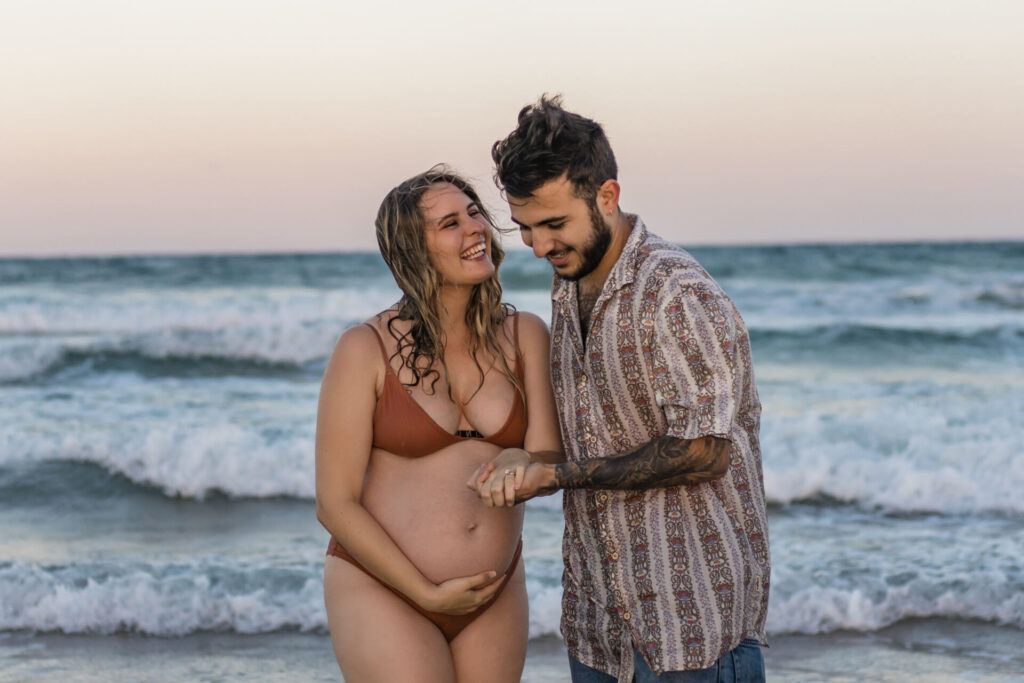
Determined to give the “controversial” method a go, despite her apprehensions, she decided to freeze the placenta after her second delivery and claims the taste is like cranberry.
- Advertisement -
In a bid to share her concoction, she decided to upload a clip on TikTok showing her drinking the smoothie – racking up one million views and 60,000 likes.
“Honestly, you could not tell that there was a placenta in the smoothie – it was a really nice recipe and I was very surprised by it,” Tiana-Rose told NeedToKnow.Online.
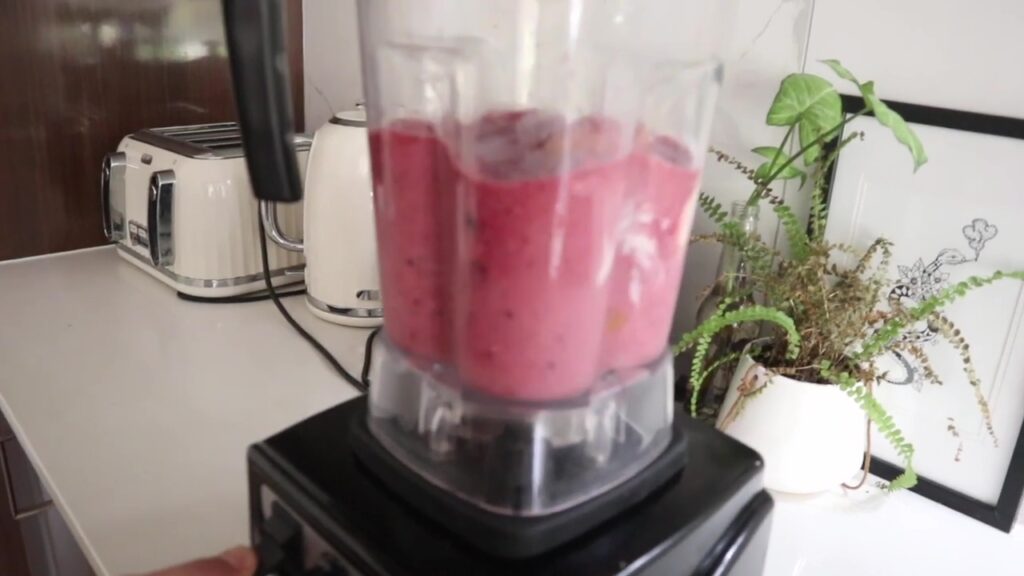
“My fiancé gave it a try, completely consented, and he had the same reaction, as he thought it tasted just like a cranberry smoothie.
“We didn’t give any to the kids, but Theo loves a regular mixed berry smoothie and he thought it was hilarious when I joked about a placenta being in there.
“After we birthed the placenta into a sterilised bowl, our doula immediately started preparing it in our kitchen, as we had a home birth.
- Advertisement -
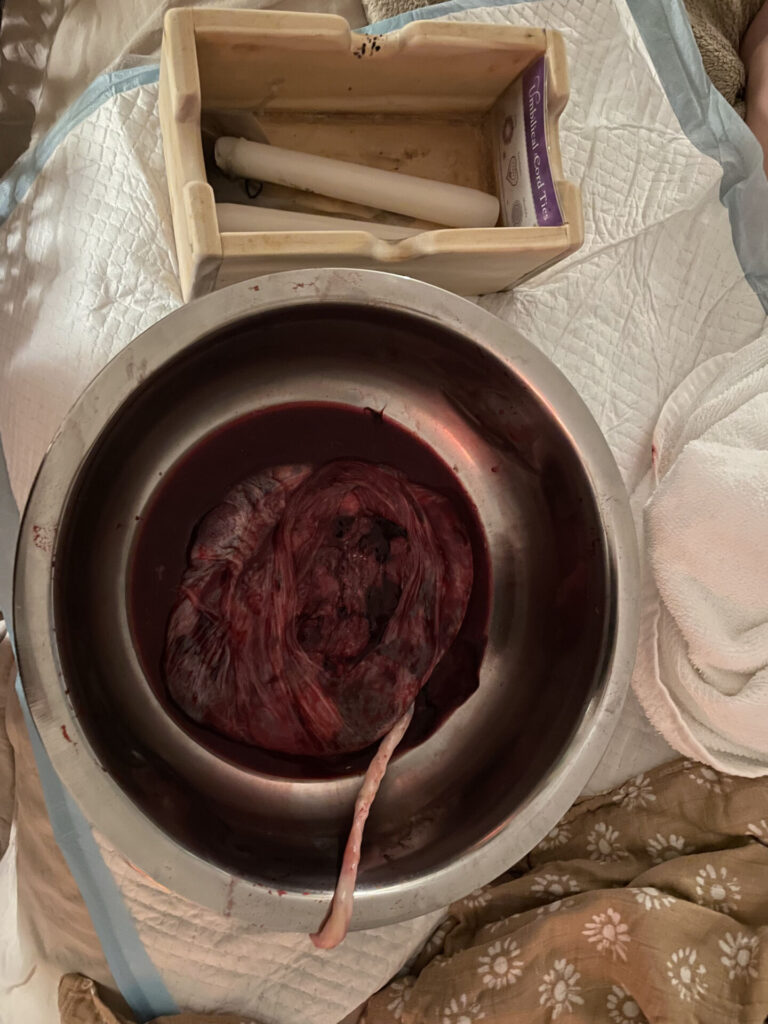
“She cut it into two centimetre cubes and popped them into an ice cube tray, before placing them in the freezer.”
In order to make their “nutritious” drink, they followed a recipe from a book called The First Forty Days: The Essential Art of Nourishing the New Mother.
Firstly, they gathered ingredients such as pomegranate juice, frozen mixed berries, yogurt, banana, coconut oil, honey and a chia and flax seed mix, before blending together.
- Advertisement -
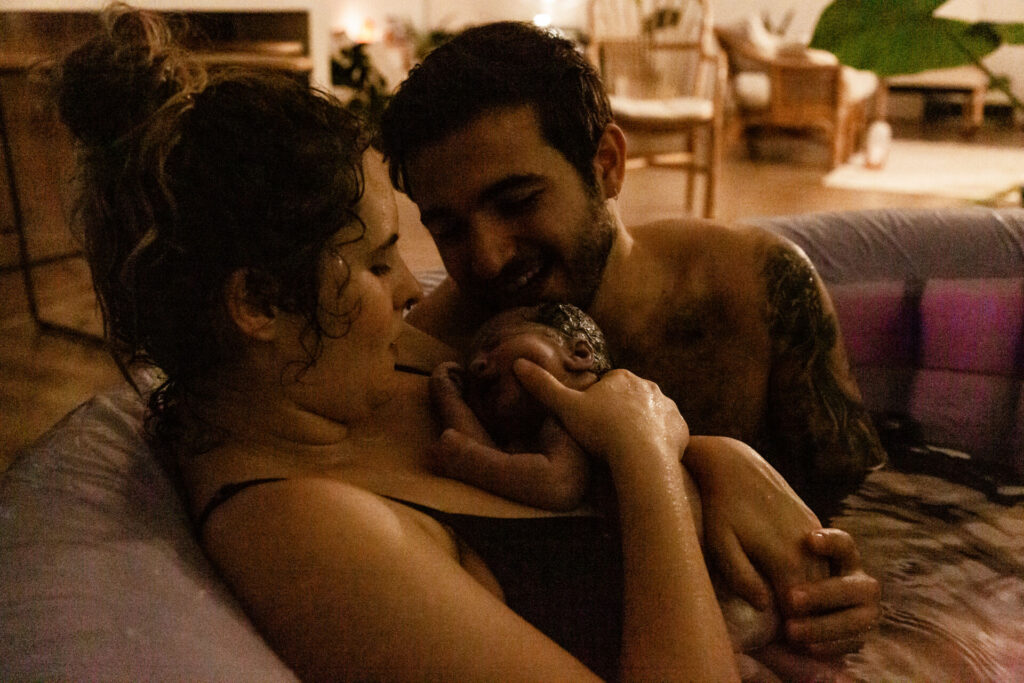
Now, she “swears” by the smoothie and claims to have suffered from no postpartum anxiety or depression at all.
She said: “It was so funny, as when we Snapchatted our friends, they thought it was super gross and weird. “But our online communities were all for it, with women sharing their positive experiences.
“Some people were really caught off guard and it developed the name of the ‘what smoothie’ – but others were super supportive.
“I always knew second time around this is something I would do, but I had heard about placenta smoothies and thought they would be gross.
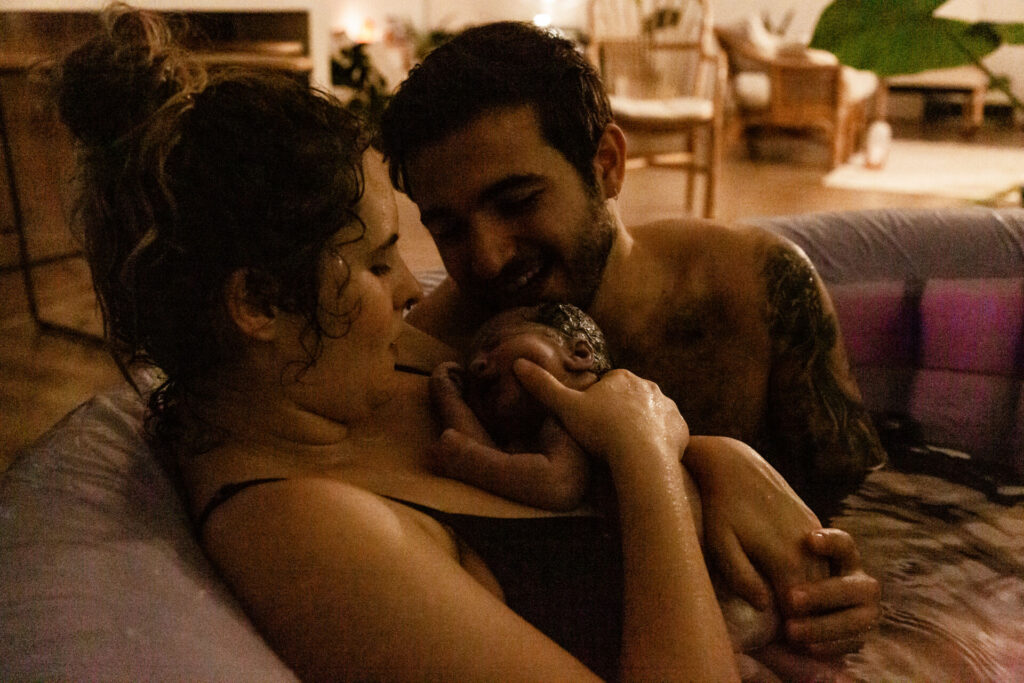
“However, as women swore by the smoothie, I was open to trying it and I definitely felt energised on the days I had it – but was sluggish and tired on the days I didn’t.”
Now, she recommends other mothers to give the “bizarre” combination a try and says it’s important to nurture the body after giving birth.
In the clip, she can be seen with a glass of the smoothie and a straw, talking about how good it is before offering some to her toddler.
The video was captioned: “We all drank the placenta smoothie! So many benefits.”
Users were left in shock, with many commenting their reactions.
One person said: “That’s so scary to me but I’d be willing to research more about it or listen if u wanted to share.” [sic]
Someone else added: “For all of you confused it’s perfectly normal for some people to do. Idk why it’s such a shock to some of y’all. And it is NOT weird people!” [sic]
One user commented: “Nah shes joking right?” [sic]
“A lot of people eat their placenta, it has a lot of benefits,” said another user.
“That’s wild but good for y’all,” commented someone else. [sic]
Tiana-Rose added: “I think in western culture, freshly postpartum mothers are expected to just jump back into it, but it’s so important that we use the first six weeks to recover and bond with our babies.
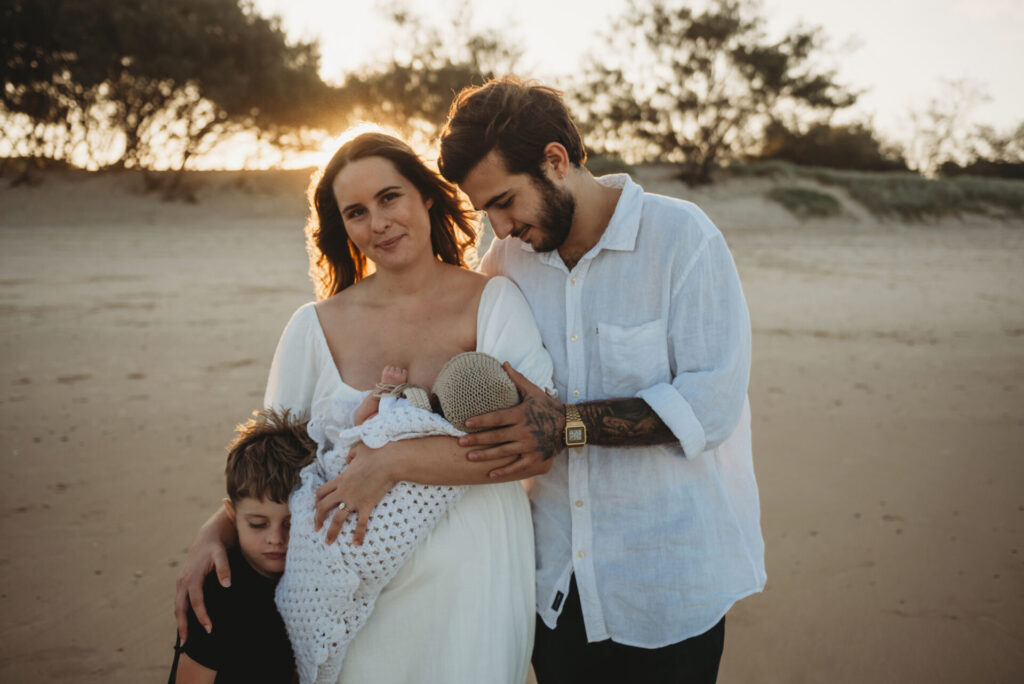
“Slowing down made a world of difference in how I mother and nurture my body.
“I would recommend mothers to try their placenta, whether it’s a smoothie or encapsulation.
“From my own personal experience and women from all over the world, there’s been nothing but benefits.
“Once you get past the gross association, it’s actually fine.”
Read the full article here


